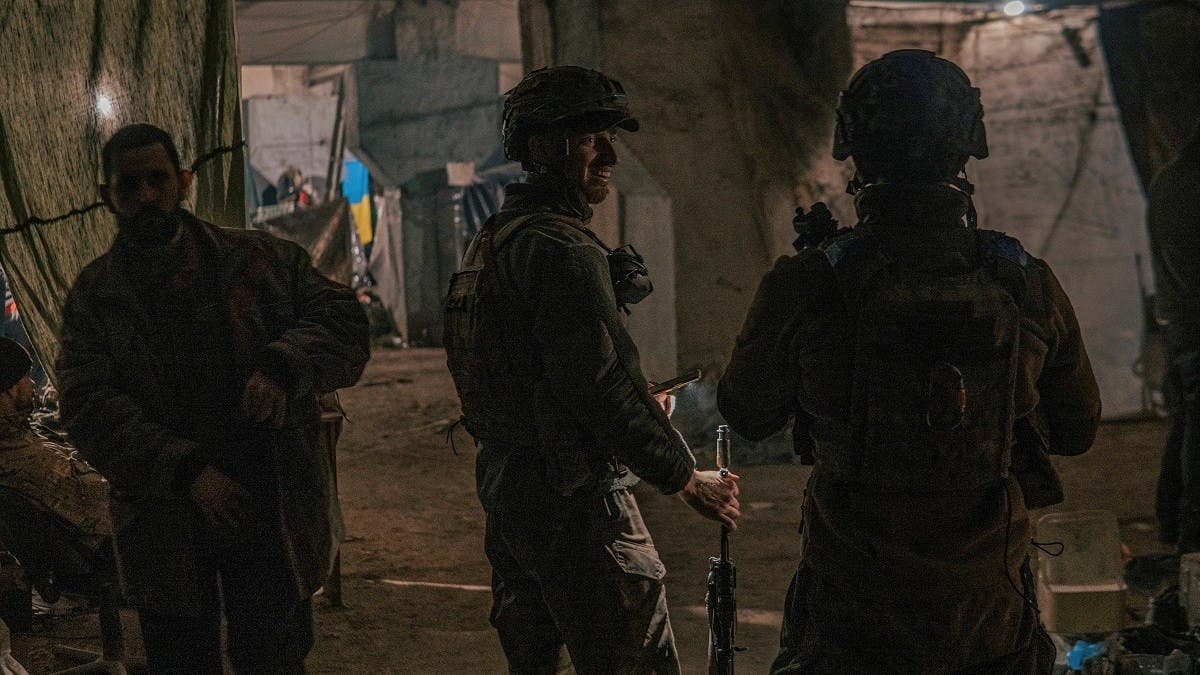The Ukrainian forces who made a determined last stand in a Mariupol steel mill against Russian troops were a mixture of seasoned soldiers, border guards, a controversial national guard regiment and volunteers who took up arms in the weeks before Russia’s invasion.
As Russia announced it had completed its takeover of Mariupol with the surrender of the fighters who served as the final obstacle, Ukraine’s government did not confirm the city’s fall.
For the latest headlines, follow our Google News channel online or via the app.
Earlier in the week, Ukrainian officials said its combatants in the Azovstal steel plant had completed their mission and were being evacuated, describing them as heroes who had fulfilled a grueling task.
Here’s a look at these Ukrainian forces, who were taken prisoner by the Russians as they left the plant, and what they accomplished:
Who were the defenders of Mariupol?
Russia’s Defense Ministry said a total of 2,439 Ukrainian fighters from the steelworks had surrendered since Monday, including over 500 on Friday, according to Russian state news agency RIA Novosti.
The fighters who held out at Azovstal, for much of the nearly three-month siege of Mariupol with Ukrainian civilians who sought safety in the plant’s underground bunkers and tunnels, came from a variety of different military and law enforcement units, according to Ukrainian officials.
There was the Azov Regiment, which is part of Ukraine’s National Guard; the 36th Special Marine Brigade of Ukraine’s Naval Forces and the 12th brigade of the National Guard. Border guards, police officers, and territorial defense squads formed shortly before the war supplemented their ranks.
The bulk of these forces were deployed to defend Mariupol, home to a strategically located port, at the start of the Russian invasion. Marines from the 36th brigade held the port and another large plant in Mariupol for more than a month, until they ran out of supplies and ammunition.
They moved to the Azovstal steel mill to join the Azov Regiment, a national guard unit with roots in the far right, and some of them were captured by the Russians.
Why does Russia label them ‘nationalists’?
In announcing Azovstal’s seizure, the Russian Defense Ministry’s chief spokesman referred to the Azov Regiment’s fighters as Nazis and said their commander was taken away in an armored vehicle because of local residents’ alleged hatred of him “for numerous atrocities.”
No evidence has surfaced of the regiment mistreating Ukrainian civilians, hundreds of whom sheltered underground with the fighters. The regiment released several videos taken inside Azovstal that showed their members interacting with the civilians and giving children sweets.
Russian officials and state media repeatedly made negative assertions about the Azov Regiment.
The National Guard unit grew out of a group called the Azov Battalion, formed in 2014 as one of many volunteer brigades that rose to bolster Ukraine’s underfunded and questionably led military in the fight against Russia-backed separatists in eastern Ukraine.
That conflict broke out after massive protests drove Ukraine’s Kremlin-leaning president from office.
The Azov Battalion drew its initial fighters from far-right circles and elicited criticism for some of its tactics. Its current members rejected accusations of nationalism and radicalism. Sviatoslav Palamar, the regiment’s deputy commander, said in a recent interview from the steel mill that he preferred the term “patriotism.”
What did the defenders accomplish?
As Mariupol became a symbol of the suffering and resistance of Ukrainians after Russia invaded their country, Ukrainian officials repeatedly stressed the role the fighters at Azovstal played in defending the city and stymying Russian progress elsewhere.
“The Ukrainian troops in Mariupol have already performed a feat, drawing the elite forces of the Russian army onto themselves and significantly slowing down the advance of the Russians in the southeast,” Mariupol Mayor Vadym Boychenko said.
After the plant’s defenders were instructed to end their fight, Ukrainian President Volodymyr Zelenskyy said the move was proper and humane because “Ukraine needs Ukrainian heroes to be alive. It’s our principle.”
The ruined seaside city and the outgunned and outmanned Ukrainian fighters whose persistence frustrated Russia’s objective to capture Mariupol quickly are now irrevocably etched into Ukrainian history, regardless of the outcome of the war.
The defense of Mariupol “will go down in history as Thermopylae of the 21st century,” Mykhailo Podolyak, an adviser to Ukraine’s president, said as the fighters started leaving the plant.
“The Azovstal defenders thwarted the enemy’s plans to seize eastern Ukraine, drew away enormous numbers of enemy forces, and changed the course of the war.”
Thermopylae is widely considered one of history’s most glorious defeats, in which 300 Spartans held off a much larger Persian force in 480 B.C. before finally succumbing. They were killed to a man, including their king.
Read more:
US President Biden signs $40 billion aid bill for Ukraine’s war effort: White House
Facebook slammed for spreading Russian President Putin’s propaganda in NATO’s east
President Zelenskyy says only ‘diplomacy’ can end Ukraine war

 World3 years ago
World3 years ago
 World3 years ago
World3 years ago
 Business1 year ago
Business1 year ago
 Entertainment7 years ago
Entertainment7 years ago
 World7 years ago
World7 years ago
 Entertainment7 years ago
Entertainment7 years ago






